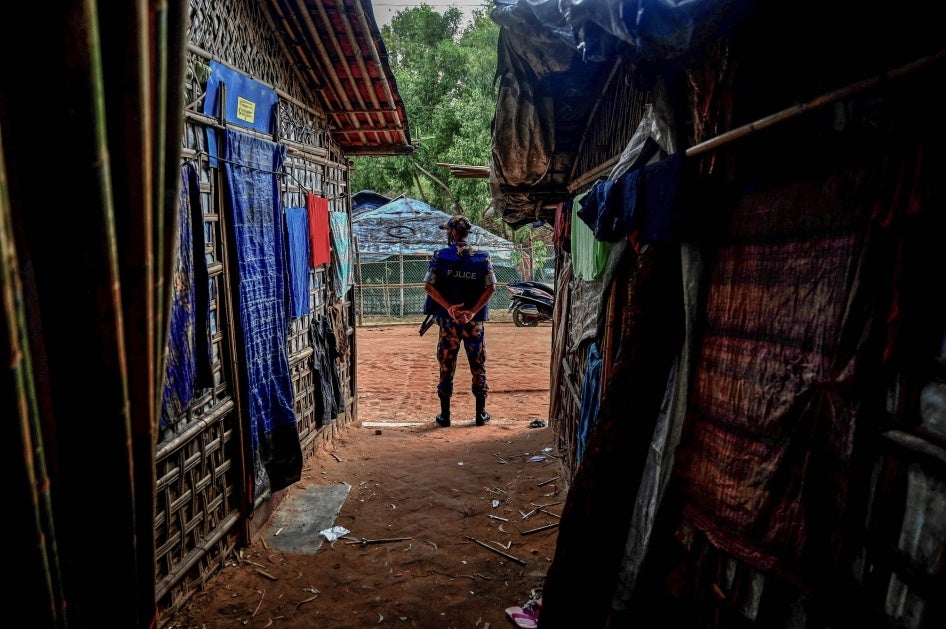
Meenakshi Ganguly
Earlier this month, a Rohingya woman in a refugee camp in Bangladesh reported that a police officer had been stalking her for a year. She said that on the night of January 7, he entered her home under the pretext of a search operation and attempted to rape her.
The Bangladesh Armed Police Battalion (APBn), deployed to provide security in refugee camps, have yet to investigate the case. A neighbor said that when the 22-year-old mother of two shouted for help, some local residents stepped forward, but were stopped by two men in civilian clothes claiming to be members of the security team. The men only left after more people had gathered. The woman’s husband said he has since received anonymous threats on the phone, and fears that he might be arrested or his family killed. “I think we will leave the camp and either go to Myanmar or take a boat to Indonesia,” he told Human Rights Watch.
The Bangladesh authorities should promptly and impartially investigate the matter. To provide genuine security in the camps, they need to take refugees’ accusations of police violence seriously.
In the past decade, nearly a million Rohingya have fled persecution by the Myanmar military and are now living precariously in sprawling refugee settlements in Bangladesh.
Human Rights Watch has previously reported on allegations of extortion, arbitrary arrests, and the torture and harassment of refugees by camp police. Soon after, several units were transferred and the refugees reported that the abuses had reduced. But, according to recent interviews, these abusive practices are again on the rise.
Activists say Bangladeshi authorities seldom hold the police in the camps to account for human rights violations, which creates a climate of impunity for ongoing abuses including sexual assault. “The APBn police force has been targeting the Rohingya girls and women that they find attractive, threatening to arrest male family members if they refuse to cooperate,” a Rohingya activist said. “Male APBn members just enter shelters, and if the men are away, they harass the women.”
Bangladesh police have received various trainings to strengthen gender-responsive policing, but unless the government and donors to these programs ensure that security forces responsible for abuses are credibly prosecuted, sexual assault and other serious crimes will persist.
